Former Iranian MP says Iran not a priority for Trump
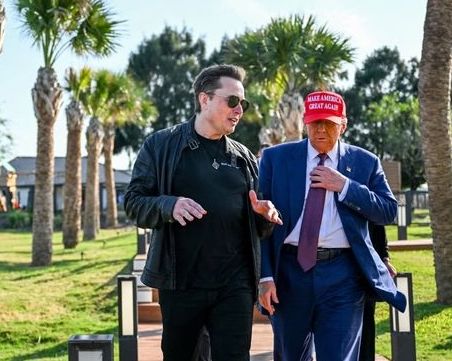
Former lawmaker Heshmatollah Falahatpisheh dismissed Tehran’s attempts to signal readiness for talks with the incoming US administration, arguing that Iran is not a top priority for Donald Trump.

Former lawmaker Heshmatollah Falahatpisheh dismissed Tehran’s attempts to signal readiness for talks with the incoming US administration, arguing that Iran is not a top priority for Donald Trump.
Iranian media on Friday quoted Heshmatollah Falahatpisheh as saying, "Trump is focused on domestic issues, with most of his time spent negotiating with business owners and corporate leaders in the United States. Therefore, Iran should not be viewed through the lens of players like Netanyahu. It is Netanyahu who is trying to make Iran Trump’s top priority in the Middle East."
Falahatpisheh, former chairman of the Iranian parliament's foreign relations committee during the 2010s, is a prominent and authoritative voice among Tehran’s commentators who are permitted regular media appearances. Known for his more independent and pragmatic views on foreign policy, he often contrasts with others who tread more cautiously in their remarks.
His remarks came in the wake of a call by one of President Masoud Pezeshkian's aides, who recently advocated direct negotiations with Trump, emphasizing the need for a new foreign policy to strengthen Iran’s international position.
Ali Abdolalizadeh, who headed Pezeshkian’s election campaign, said on December 31 that "We must negotiate with Mr. Trump. The country's issues cannot be left unresolved, and the entire establishment has also reached the conclusion that direct negotiations are necessary."
Falahatpisheh in his remarks emphasized that “Based on the historical experience with Trump and his associates, his close circle consistently takes a hardline stance against Iran, and Trump’s own history is defined by his policy of maximum pressure.” However, he argued that at this juncture the issue of Ukraine is the priority for the president-elect.
He voiced his opposition to attempts by certain Iranian officials to make conciliatory remarks directed at the incoming US administration. “Proactively seeking negotiations with the United States cannot safeguard Iran's national interests. I see that some of Mr. Pezeshkian's associates are talking about engaging in dialogue with Trump and are attempting to send unreciprocated signals. These very signals reflect weakness in Iran's position.”
Falahatpisheh emphasized that Iran's primary focus in the coming month should be on strengthening its national security. He highlighted the importance of addressing domestic discontent, particularly by tackling economic challenges, as a critical first step.
"I believe Trump’s approach toward Iran will involve reviving the maximum pressure policy while also presenting a proposal for negotiations. Naturally, the extent to which this proposal warrants consideration will determine how Iran shapes its foreign policy in response," Falahatpisheh said.
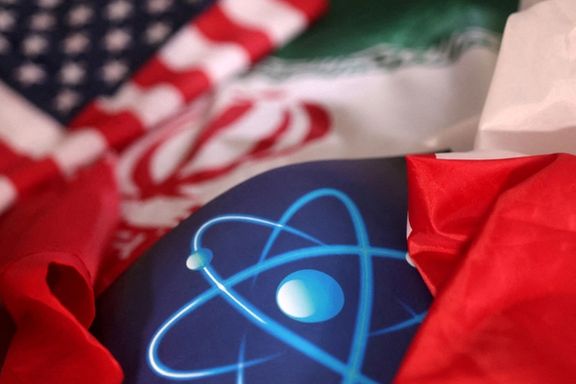
A prominent centrist political analyst has warned that Iran’s economic prospects under the 2015 nuclear deal are dwindling, urging Tehran to address sanctions as the government faces mounting pressure to revive talks with the West.
Mohammad Atrianfar, a journalist and Reformist politician, cautioned in a recent interview with Khabar Online that failing to lift sanctions could result in significant domestic political complications. "The current economic damage stems from the suspension of negotiations with the West since 2022," he said.
Khabar Online highlighted that lifting sanctions remains a key priority for the Pezeshkian administration, as officials recognize that improving living standards hinges on effective talks with Western powers.
Atrianfar highlighted internal resistance to negotiations, stating, "There is an undesirable reluctance in Iran toward talks, with hardliners questioning whether negotiators can protect Tehran's interests. Their argument is: 'If we are going to lose in negotiations, why participate at all?'"
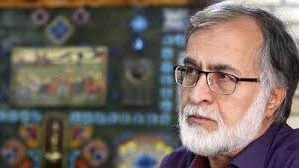
Elaborating further, Atrianfar remarked, "Radical stances will constrain reasonable politicians, making effective governance difficult. However, radicalism is destined to fail if moderates are empowered to lead."
Fereshteh Saemi, a commentator for the website, observed that "the government appears to have shifted its approach" in light of the pressing need to address the economic crisis.
The remarks underscore growing calls for a return to diplomacy, with reformists and moderates pushing for a path forward amid the ongoing economic challenges.
Rassoul Salimi, a Khabar Online columnist, criticized Iran's hardliners for halting the nuclear talks led by then-Deputy Foreign Minister Abbas Araghchi in Vienna. He noted that the negotiations were stopped at a critical moment when the West was reportedly ready to offer key concessions to Iran.
According to Salimi, hardliners hoped to extract even greater concessions, particularly from the United States, as Ebrahim Raisi was poised to win the June 2021 presidential election. He added that their goal was to sabotage outgoing President Hassan Rouhani’s chances of securing a deal and to position Raisi’s administration for a political win.
Under Raisi, the talks briefly resumed, led by chief negotiator Ali Bagheri, but stalled within a year, coinciding with the war in Ukraine and Iran’s formal support for Russia. During this period, Salimi observed, Tehran’s hardliners worked actively to ensure the negotiations would fail.
While Iranian officials and media anticipate a new round of negotiations after Donald Trump takes office in late January, some officials, including Kamal Kharrazi, secretary of the Strategic Council for Foreign Relations—a body affiliated with Supreme Leader Ali Khamenei's office—have outlined a cautious approach. Kharrazi stated, "Although Iran is prepared for negotiations, it has its own conditions for the talks," though he did not specify what those conditions entail.
In an interview with Al-Mayadin TV in Lebanon, Kharrazi said, "Iran will determine its next steps after it learns about the new US policy." He added, "Iran is equally prepared for negotiations or confronting Western pressures. Our response will be proportional to the West's behavior."
All this is happening while some politicians in Iran, including Former Vice President Es'haq Jahangiri have told the media that "There are hard days ahead of Iran" as Iran's economy is badly hit by US sanctions."
In mid-January, pro-reform website Fararu warned that "the trigger mechanism of the 2015 deal will be activated and all the sanctions imposed on Iran will be reactivated if Iran fails to reach an agreement with the United States over its nuclear program before August 2025."
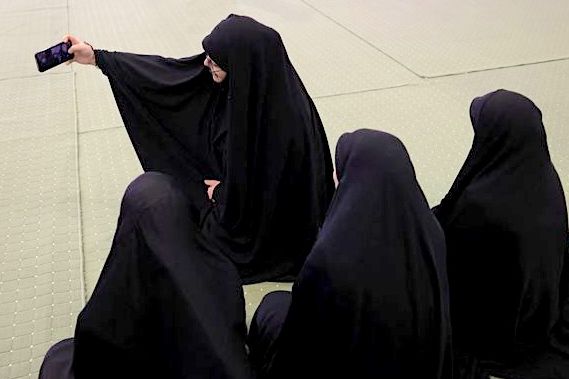
As economic protests take place in Iran, the government-sponsored rallies and those organized by its core ultra-hardliner supporters are garnering dramatically less support amid the country's mounting crises.
The turnout for an annual state-sponsored political rally, which took place on December 30, seemed notably lackluster compared to previous years, with reports showing much smaller turnout and a much more subdued tone.
The Islamic Republic finds itself hard pressed by multiple crises, both at home and abroad. Its national currency has fallen by almost 40% since September, while it has been expelled from Syria after rebels captured Damascus.
Dey 9 Rally in Tehran This Year
As in previous years, the state-controlled media claimed that millions attended the rallies in Tehran and other cities. However, despite tight media controls, a report by the Reformist website Ensaf News on December 30 painted a different picture, at least about the rally in the capital.
The report noted that the crowd at Tehran’s Emam Hossein Square, the primary venue for the show of force, filled only about 60 percent of the medium-sized city-center square. Additionally, many attendees reportedly left midway through the ceremony and speeches.
Several people who attended of their own volition, unlike others mobilized by the state and religious organizations, said they were unaware of what the event commemorated.
Looking Back to December 30, 2009
The annual rallies date back to December 30, 2009, when the Islamic Republic mobilized massive crowds nationwide to protest against the anti-establishment Green Movement and its leaders, showing support for Supreme Leader Ali Khamenei who endorsed a controversial decision to announce Mahmoud Ahmadinejad as the winner of the presidential election in June of 2009.
The authorities claimed that tens of millions participated across the country, Khamenei and the state media heralding the turnout as epic. However, the opposition alleged that the government had bussed in government employees, military personnel, students, and residents of smaller towns and villages to inflate the size and impact of the rallies in Tehran and other major cities.
Following the the pro-Khamenei show of force, Green Movement leaders—Mir-Hossein Mousavi, his wife Zahra Rahnavard, and Mehdi Karroubi—were placed under house arrest.
The events of December 30, 2009 marked the end of the harshly suppressed Green Movement protests, and Dey 9 (falls on December 29 or 30 in the Persian calendar) became an annual occasion for those wishing to affirm loyalty to Khamenei.
These state-sponsored rallies, like those on the anniversary of the 1979 Islamic Revolution, are consistently covered extensively by state media and presented as proof of the system's legitimacy.
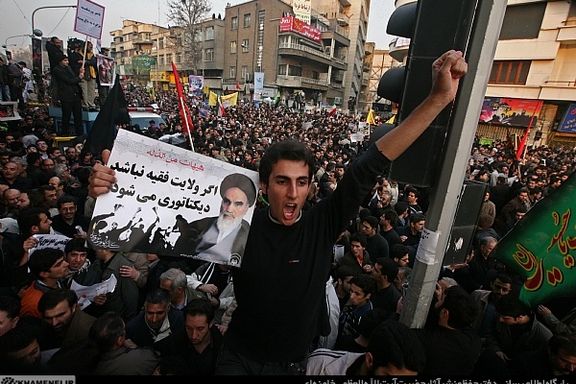
Vigilantes struggle to organize protests
Ultra-hardliner vigilantes have long been among Khamenei's core supporters and a key part of state-sponsored rallies. However, in recent months, they have struggled to mobilize even small groups on their own to protest against President Masoud Pezeshkian, whom they accuse of deviating from the more conservative agenda of the Islamic Republic and contributing to the country’s economic troubles.
On December 24, only a handful of vigilantes showed up for a protest against the government's decision to unblock WhatsApp and Google Play.

Citizen’s protests and strikes growing under economic pressures
Meanwhile, strikes and protests over fair wages, better working conditions, and payment of overdue salaries have now become a regular occurrence involving workers, retirees, nurses, teachers, and even merchants in the capital, with the likes of the IRGC warning citizens against protesting.
Fearing arrest amid continued crackdowns on protests, demonstrators often avoid strong slogans and direct attacks on top authorities including the Supreme Leader and instead, mainly focus on their economic demands.
On December 29, protests erupted at the Grand Bazaar in Tehran over soaring foreign currency rates and the worsening economic crisis, prompting many merchants to strike.
The strike spread to the nearby Sepahsalar shoe market that same day. The next day, goldsmiths in the Grand Bazaar also went on strike in protest against the economic conditions. Notably, there were no reports of violence against protesters or arrests.
On December 31, labor and retirees protest were reported in several cities across the country.
Notably, despite the presence of security forces at all times, there have not been reports of violence against these protesters recently, reflecting authorities’ concern that cracking down on protesters could trigger a flare-up similar to the 2022 unrest.
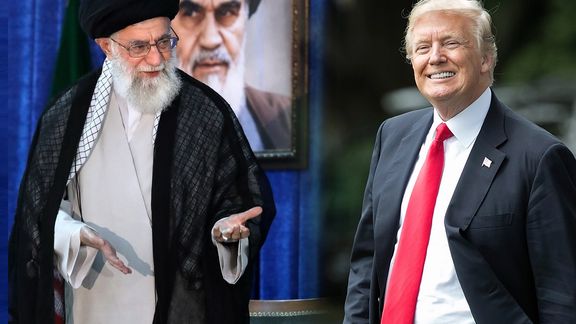
Some Reformist politicians in Iran are urging direct talks with Donald Trump to help resolve the country's serious economic crisis. However, others prefer indirect talks, highlighting hesitations among establishment figures.
In an interview with Etemad daily, prominent Reformist figure Ali Shakuri-Rad said on Tuesday that if Iran can carry out direct talks with the United States, it might even be able to stop Israeli Prime Minister Benyamin Netanyahu from what he called his outrageous behavior.
Referring to recent developments, including Elon Musk's reported meeting with Iran's UN ambassador, the visits of a Japanese deputy foreign minister Takehiro Funakoshi and Oman's Foreign Minister Sayyid Badr Albusaidi’s trips to Tehran, Shakuri-Rad stated that these “are clear signals indicating the United States is reaching out to Iran."
Remembering that Trump’s reported message carried by former Japanese Prime Minister Shinzo Abe in 2019 was ignored by Khamenei, Shakuri-Rad warned that "Tehran should avoid that kind of reaction to the US outreach." He said, "ignoring that particular message created serious problems for Iran."
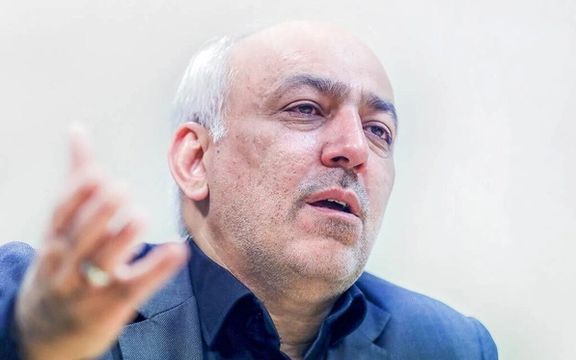
"Such messages should not be left unanswered," the analyst said, adding that "Iran should not avoid direct talks with Washington, and should not give negative responses to the United States' messages as they provide opportunities for Tehran."
"Iran should not close the doors to negotiations with Trump," he said, adding, "We should negotiate with Trump and hope to protect our national interests through the talks."
Meanwhile, in an interview with pro-reform Jamaran News website, Mohammad Ghoochani a member of the government's news dissemination team said that "Iran will certainly hold indirect talks with the United States sometime during the next months although it might be in Tehran's interest to conduct direct negotiations."
Ghoochani said he personally believes that "It is essential to hold direct talks with America," adding that "holding direct talks does not mean we will accept whatever Trump might say."
Ruling out former security chief Ali Shamkhani's claim about being in charge of Iran's nuclear negotiations, Ghoochani reiterated that "the Foreign Ministry and Foreign Minister Abbas Araghchi will be leading the Iranian delegation in the talks."
However, he noted that Khamenei's advisor, Ali Larijani, "might also play a key role in negotiations with the United States," but he did not provide further details.
Recently, other moderate politicians including former Vice President Es'haq Jahangiri also called for direct talks with the United States and said Iran's ailing economy needs urgent attention.
According to centrist Entekhab website, Former President Hassan Rouhani, who has always supported negotiation with the West, also told his political allies in a meeting that "Iran's problems will not be solved without constructive interaction with the world." He said, "Lifting of sanctions and accepting FATF protocols are prerequisites for engagement with the West. He also pointed out that the government in Tehran should listen to the people's demands.
In a related development, a Reformist commentator highlighted the severity of the country's economic crisis in the Etemad newspaper. "The government is running out of time as the hardships in Iran have become unbearable," he warned. In what appeared to be a reference to Khamenei, he added, "It would be a mistake for the broader political structure to believe that only the presidential administration is responsible for resolving these issues. If the government fails, everyone fail.”

Britain, France, and Germany will begin a new round of talks with Iran over its nuclear program in Geneva on January 13, Iranian foreign ministry announced on Tuesday.
Iran and the three European powers, commonly referred to as the E3, agreed in November to continue negotiations in an effort to resolve the deadlock over Tehran’s nuclear program.
The announced date is a week before Donald Trump's inauguration and may be viewed by both sides as the final opportunity for a breakthrough before US policy hardens.
Trump is expected to resume his first term strategy of Maximum Pressure upon returning to the White House on January 20.
Meanwhile, Iran has agreed to stricter monitoring by the UN nuclear agency at its Fordow site after significantly accelerating uranium enrichment to near weapons-grade levels, the watchdog stated in a report seen by Reuters.
UN nuclear watchdog chief Rafael Grossi said in December that Iran is dramatically accelerating its enrichment of uranium to up to 60% purity, closer to the roughly 90% level needed for building a bomb. Tehran denies pursuing nuclear weapons and says its program is peaceful.
In 2018, the then administration of Donald Trump withdrew from Iran's 2015 nuclear pact with six major powers and reimposed harsh sanctions on Iran. In response, Tehran violated the pact's nuclear limits, with moves such as rebuilding stockpiles of enriched uranium, refining it to higher fissile purity and installing advanced centrifuges to speed up output.
Indirect talks between US President Joe Biden's administration and Tehran aimed at reviving the pact have failed.
Trump said during his election campaign in September, "We have to make a deal, because the consequences are impossible. We have to make a deal".
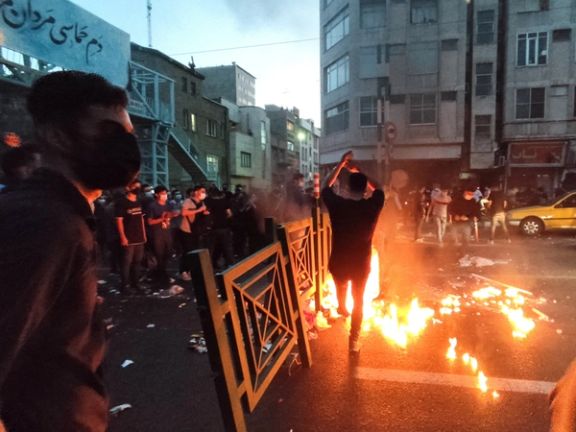
A day after protests erupted at two of Tehran's traditional bazaars over the worsening economic crisis and soaring inflation, the goldsmiths bazaar joined the strike on Monday, December 30.
The unrest in Tehran's largest traditional market comes amid growing warnings from politicians and economists about Iran's dire economic state. Reformist politician Ali Mohammad Namazi told conservative outlet Nameh News, "The situation of the Iranian economy is alarming."
Namazi criticized President Masoud Pezeshkian for failing to deliver on campaign promises to "lift sanctions, facilitate international trade, and expand relations with other countries." He added, "The public is now demanding accountability for these unfulfilled promises."
"Iranians are uncertain about their future," Namazi said, warning that unresolved problems could escalate into crises. He also noted that the current instability benefits those with access to insider information while making long-term planning impossible for ordinary citizens.
Namazi further highlighted the structural challenges facing Iran, even if sanctions were lifted. "Even in the best-case scenario, restoring oil production to normal levels would require at least four months of intensive work due to neglected maintenance of oil wells," he explained.
Economic strains and potential unrest
Nameh News emphasized the falling value of the rial and persistent high inflation as key issues plaguing Iran's economy. In response, IRGC commanders and Iran's judiciary chief have stated they are prepared to handle potential unrest. Namazi warned that if the economic freefall, particularly the decline of the rial, is not controlled, widespread protests could ensue.
Geopolitical complications
Iranian foreign policy analyst Ghasem Mohebali told Nameh News that hardliners within Iran oppose lifting sanctions because a normalized economy could weaken their influence. "Hardliners in Iran, like their counterparts in the region and beyond, benefit from ongoing tensions," Mohebali said. He pointed out that global players, including Iran, Russia, the United States, and even China, have vested interests in maintaining instability in the Middle East to advance their own agendas.
"China, for instance, prefers regional tensions to keep the US and Europe distracted from focusing on the war in Ukraine and applying pressure over East Asia," Mohebali added.
Political pressures on the Pezeshkian administration
Amid the crisis, President Pezeshkian faces pressure from reformists and hardliners alike. The IRGC-linked Javan newspaper reported that reformist figures, including former President Mohammad Khatami and former Majles Speaker Ali Akbar Nateq Nouri, are urging Pezeshkian to tell Supreme Leader Ali Khamenei that the government cannot resolve the crisis without negotiating with the West.
Former Vice President Es'haq Jahangiri echoed this sentiment, stating, "Iran is in a difficult situation, and Tehran needs to negotiate with Trump and accept his conditions."
Meanwhile, the hardliner Kayhan newspaper, linked to Khamenei’s office, criticized Pezeshkian’s advisers and called for a government reshuffle. "The current deadlocks are the result of poor advice given to the President," Kayhan warned, adding that advisers suggesting the government is incapable of solving the crisis "are not well-wishers."
Unlike reformists advocating negotiations with the Trump administration, hardliners like Kayhan cautioned against trusting the US and its allies. "How many more times must we try to deal with the 'Great Satan' and its followers?" the publication asked.
A nation at a crossroads
As economic pressures mount and political divisions deepen, Iran's government faces an uncertain path forward. With internal protests and geopolitical complexities converging, Pezeshkian’s administration must navigate mounting challenges while addressing growing calls for accountability and decisive action.